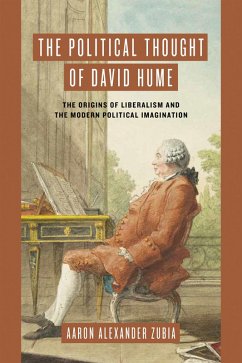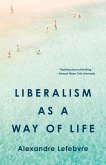Aaron Alexander Zubia argues that the Epicurean roots of David Hume's philosophy gave rise to liberalism's unrelenting grip on the modern political imagination.
Eighteenth-century Scottish philosopher David Hume has had an outsized impact on the political thinkers who came after him, from the nineteenth-century British Utilitarians to modern American social contract theorists. In this thorough and thoughtful new work, Aaron Alexander Zubia examines the forces that shaped Hume's thinking within the broad context of intellectual history, with particular focus on the ancient Greek philosopher Epicurus and the skeptical tradition.
Zubia argues that through Hume's influence, Epicureanism-which elevates utility over moral truth-became the foundation of liberal political philosophy, which continues to dominate and limit political discourse today.
Eighteenth-century Scottish philosopher David Hume has had an outsized impact on the political thinkers who came after him, from the nineteenth-century British Utilitarians to modern American social contract theorists. In this thorough and thoughtful new work, Aaron Alexander Zubia examines the forces that shaped Hume's thinking within the broad context of intellectual history, with particular focus on the ancient Greek philosopher Epicurus and the skeptical tradition.
Zubia argues that through Hume's influence, Epicureanism-which elevates utility over moral truth-became the foundation of liberal political philosophy, which continues to dominate and limit political discourse today.
Dieser Download kann aus rechtlichen Gründen nur mit Rechnungsadresse in A, D ausgeliefert werden.









